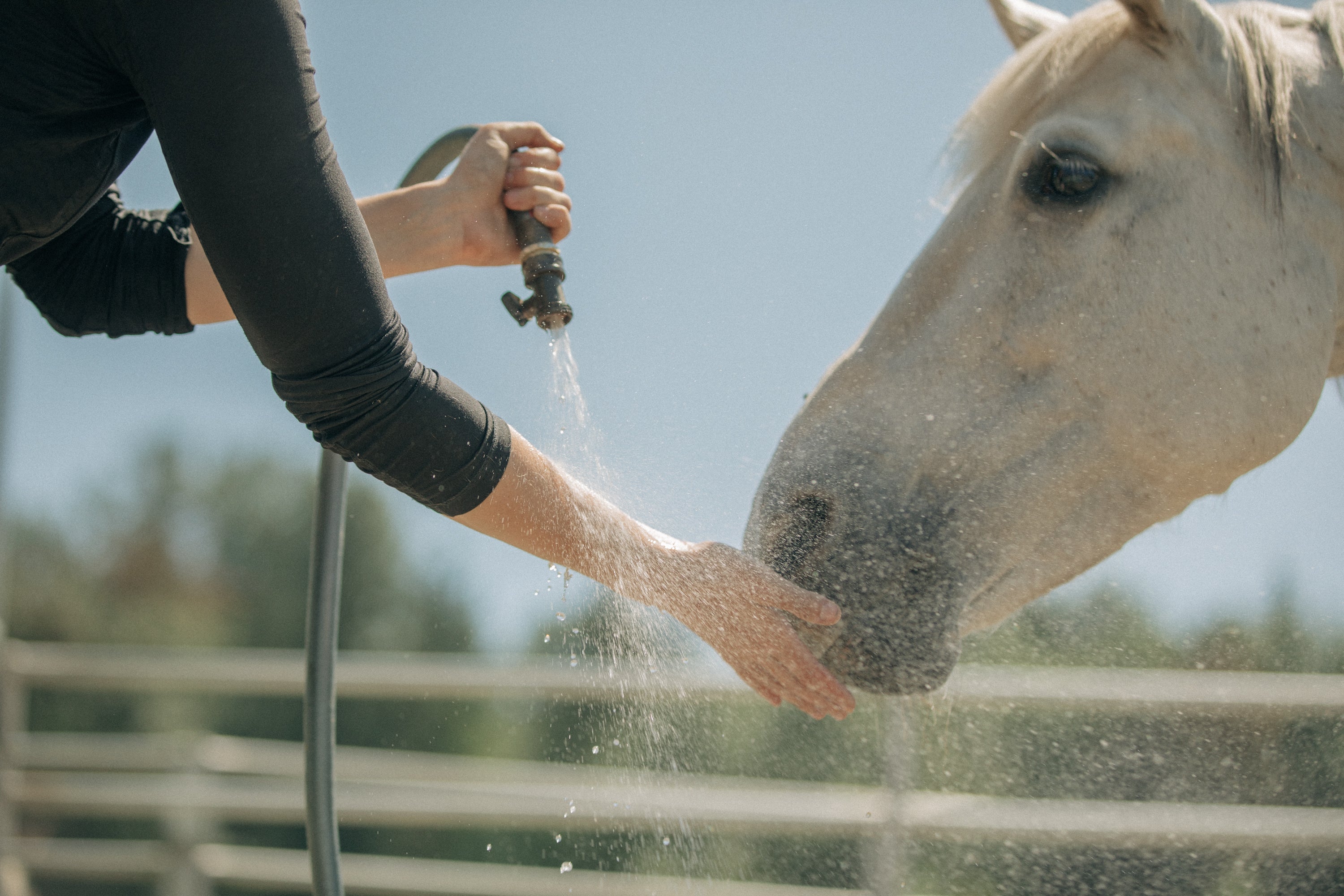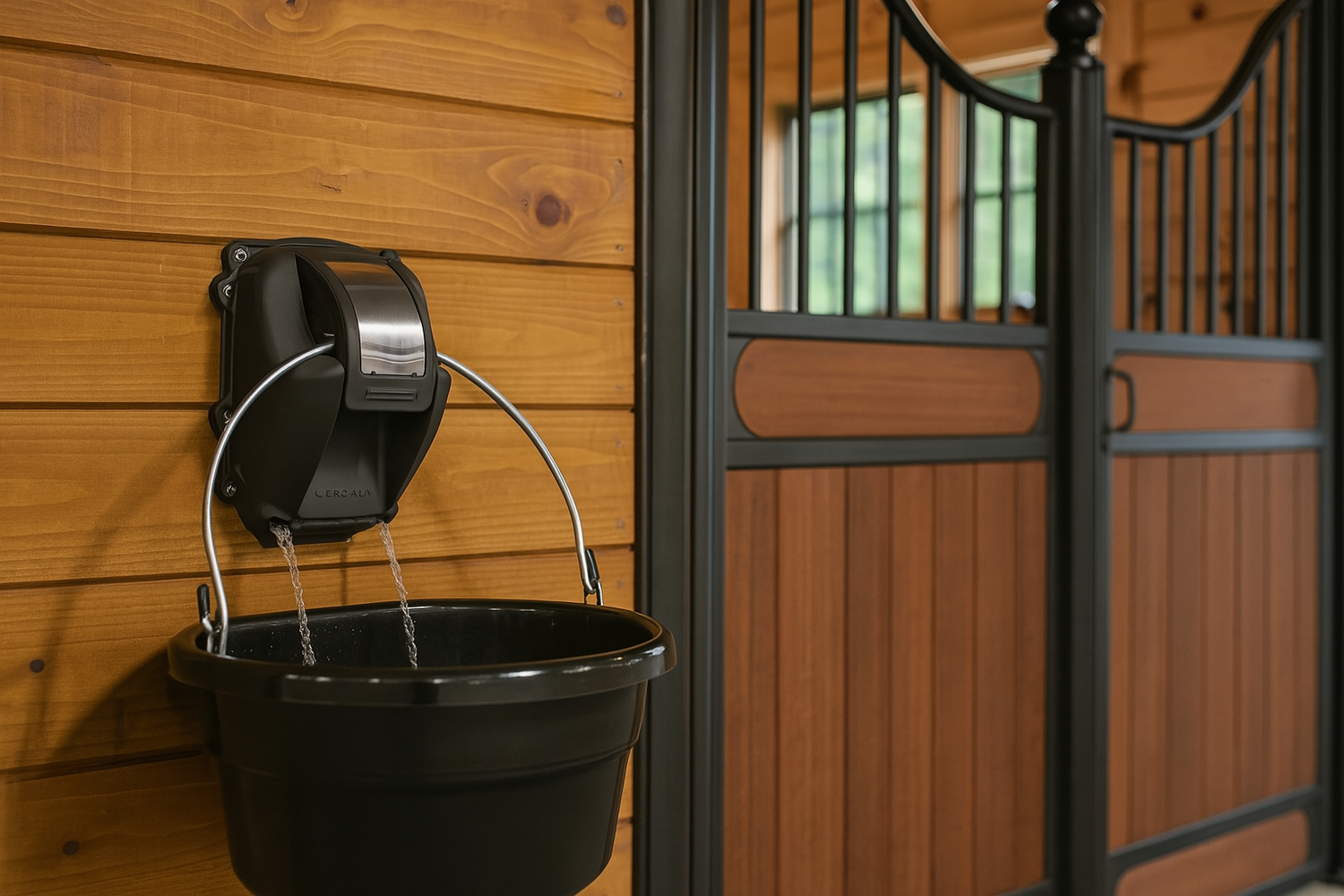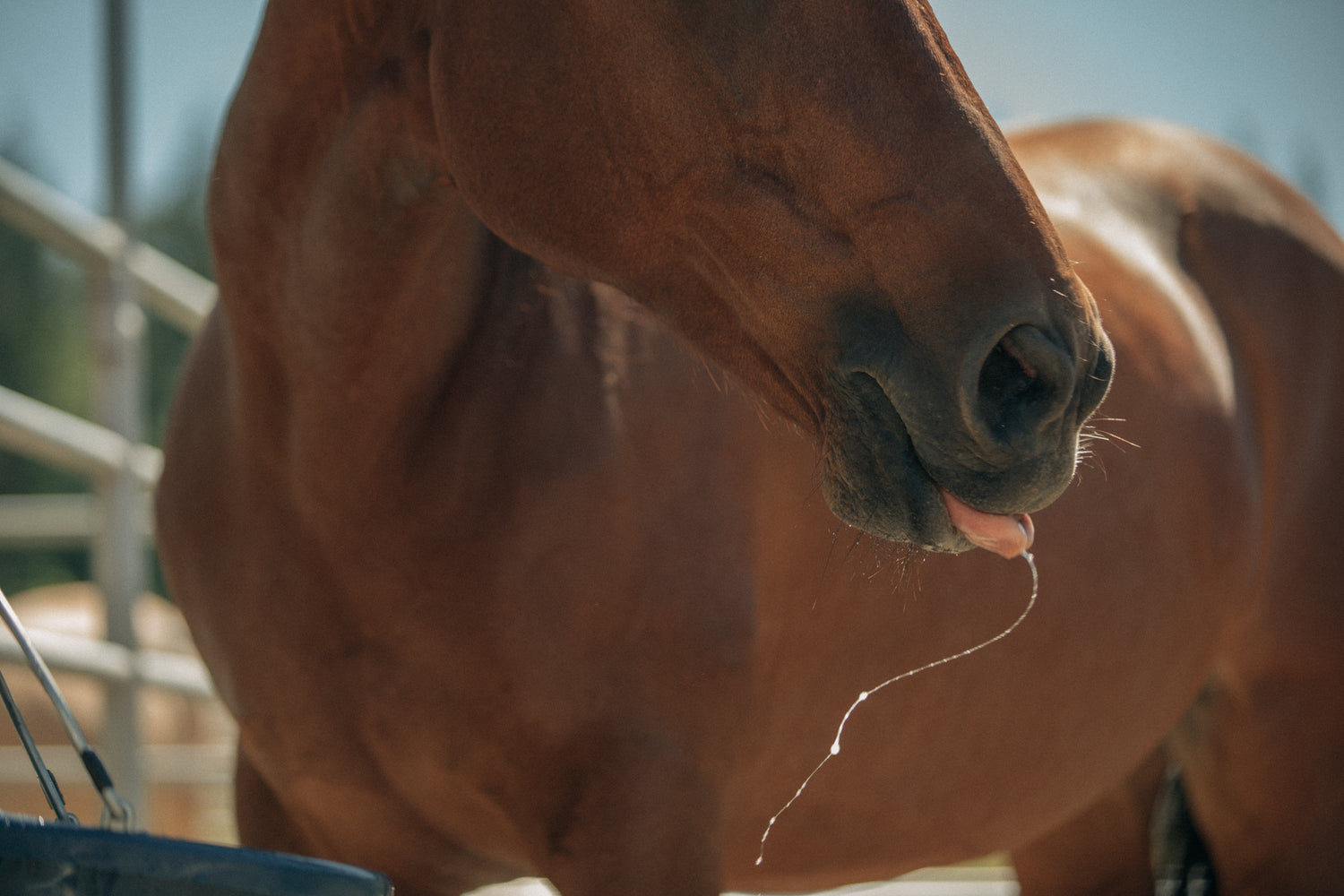
Horses, like humans, need an ample amount of water daily to stay healthy and hydrated. A dehydrated horse can experience critical health issues when the signs of dehydration get overlooked.
Since some dehydration symptoms can be subtle, horse owners need to learn what to look for. Let’s explore the signs of dehydration, prevention strategies, and recovery methods to help you ensure your horse's continued well-being.
Understanding Dehydration in Horses

What exactly is dehydration and why is it such a big deal for my horse?
Simply put, dehydration occurs when a horse loses more water than it takes in. This can upset the balance of electrolytes (essential minerals) that help keep your horse's body functioning properly.
In severe cases, dehydration can lead to serious health problems such as colic – a common but potentially life-threatening digestive disorder.
What is dehydration colic?
Dehydration colic in horses is a condition where inadequate fluid intake leads to decreased gut motility that results in impaction and abdominal pain (colic).
How many gallons of water should my horse drink a day?
On average, a 1,000-pound horse requires a minimum of 10 gallons of water per day.
This is roughly equivalent to 1 gallon per 100 pounds of body weight. However, outside factors can impact how much your horse needs daily and this amount can be higher during certain seasons or periods.
Ensuring your horse has continuous access to fresh, clean water is vital for its health and well-being.
What factors can affect my horse's daily water intake needs?
The answer lies largely in weather conditions and workload.
In hot or humid weather, horses sweat more, losing fluids and electrolytes that need to be replenished.
Similarly, a horse that is working hard – whether it's competition, training, or a tough trail – will need more water to replace what it loses through sweat.
It is also important to provide your horse with access to proper drinking water in the wintertime.
Horses can become dehydrated even when it’s cold outside since they will resist drinking water that’s too cold or iced over.
Can my horse recover from dehydration?
Yes, a horse can recover from dehydration. The key is early recognition and treatment. Mild cases can usually be treated by you, however, more serious cases will need veterinarian intervention.
It is crucial to address the underlying causes of dehydration and make any necessary adjustments to care, diet, water access, and environment to prevent it from happening.
Always consult your veterinarian for guidance tailored to your horse's specific needs.
How can I tell if my horse is dehydrated? What are the symptoms?
https://www.istockphoto.com/photo/veterinary-on-a-farm-gm545645902-98415293?phrase=sick+horse
Symptoms of dehydration can be subtle, so it is important to learn to recognize them early.
Here are some signs to watch for:
Decreased skin elasticity
One simple test to check for dehydration in your horse is the skin tent test.
- Pinch a fold of skin on your horse's neck or shoulder and release it.
- In a well-hydrated horse, the skin quickly snaps back into place.
- If the skin remains "tented" or takes a few seconds to return to its normal position, this could be a sign of dehydration.
Lethargy or depression
A dehydrated horse may appear lethargic or depressed, showing less interest than usual in food, water, or social interactions.
Dark or decreased urine output
The color of your horse’s urine and frequency can speak volumes about their hydration status. Look for dark urine or decreased urination as a sign your horse is not properly hydrated.
Dry or sticky gums
The condition of your horse's gums can also reveal a lot about their hydration levels. Healthy, hydrated horses have moist, pink gums. A dehydrated horse’s gums may feel dry or sticky to the touch.
Elevated heart rate
A resting heart rate above 60 beats per minute could be a sign of serious dehydration and warrants immediate veterinary attention.
Additional signs
Other indicators of dehydration include:
- Sunken eyes
- Poor performance
- Reduced gut sounds
- Prolonged capillary refill (the time it takes for a horse's gum color to return to normal after being pressed)
By recognizing these signs early, you can take steps to rehydrate your horse and prevent further health complications.
How can I prevent my horse from becoming dehydrated?

Here are some important steps to take to prevent your horse from becoming dehydrated:
Consistent access to clean, fresh water
The first line of defense against dehydration is ensuring your horse always has access to clean, fresh water. Remember, horses can drink up to 10 gallons of water per day, and this amount will increase with exercise and hot weather.
One way to ensure your horse has access to water throughout the day is to install an automatic horse watering system.
For example, the Cascasda uses contactless sensors to detect the water level in your horse’s water bucket and automatically refill it. This way your horse is never without clean, fresh water.
Encourage water intake
Sometimes, horses need a little encouragement to drink enough water.
One method is adjusting the water temperature. Research suggests horses tend to drink more when offered warm water in cold weather.
Additionally, to encourage your horse to drink more, consider adding flavors they enjoy. Grain-flavored water is often a favorite, but also consider options like Gatorade, apple juice, a hint of molasses, or peppermint oil. Each horse has unique preferences, so experimenting with different flavors can help you discover what your horse likes best.
When offering flavored water, be sure to offer it in addition to – not instead of – their normal unflavored clean drinking water.
Nutritional considerations
Salt and electrolytes play a crucial role in keeping your horse hydrated. Salt encourages horses to drink more water. Electrolytes help to maintain the balance of fluids in their bodies.
Consider providing a salt lick or adding electrolytes to your horse's diet – especially during periods of heavy sweating.
Adjustments in exercise and care routines
During hot weather, try to schedule workouts during the cooler parts of the day and ensure your horse has plenty of shade and water.
In cold weather, remember that horses still need an ample water supply. Read Optimizing Winter Water Intake for more tips and information.
Monitor water intake
Keeping an eye on your horse's water intake is a crucial step in preventing dehydration since any changes in your horse's drinking habits could be an early sign of dehydration.
If you manually provide water to your horse daily, this may require you to keep a log of how often you refill their water bucket.
If you have an automatic horse watering system, you can install a water meter to track your horse’s water intake. You will still need to manually check the meter throughout the day to monitor your horse’s water intake.
Another option is our automatic waterer, the Cascada . We designed an app that tracks your horse’s water intake and will send you an alert any time your horse’s drinking habits change. This can provide an early warning sign if your horse is drinking less than usual and allow you to take steps to prevent dehydration before it becomes a serious issue.

How do you treat a dehydrated horse? What can you give them?
If you suspect your horse is dehydrated, taking immediate action can help prevent further health issues.
Here is what you can do:
- Offer water and electrolytes: The first step in treating dehydration is to provide your horse with plenty of fresh, clean water. If the horse is willing to drink, consider adding electrolytes to replace those lost through sweat.
- Provide shade and rest: Allow your horse to rest in a cool, shaded area. Overexertion can exacerbate dehydration, so it is important to give your horse a chance to cool down and recover.
While these measures can help, it is also crucial to know when to seek professional help.
Seek veterinary assistance
If your horse shows severe signs of dehydration, it is time to call the vet.
Signs of severe dehydration can include:
- Elevated heart rate
- Sunken eyes
- Dark urine
- Refusal to drink
- Signs of colic
Remember, dehydration can be serious, but with prompt action and appropriate care, most horses will make a full recovery.
Securing Your Horse's Health with Hydration

Recognizing the early signs of dehydration and taking immediate action can prevent further health complications and ensure your horse maintains optimal health.
Remember, hydration is not only about providing water but also about creating an environment that encourages water drinking and supports the overall well-being of your horse. From installing an automatic waterer like Cascada to offering a hydration trigger, every effort counts.
However, if you are ever in doubt, always consult your vet to ensure the best care for your horse.






